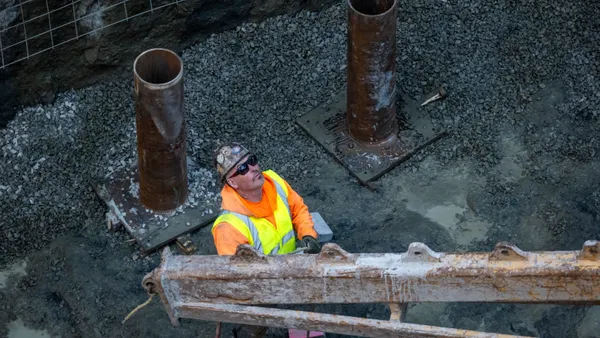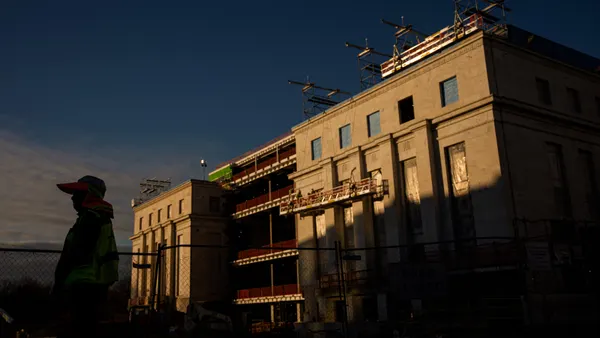Dive Brief:
-
Four more contracts have been awarded to companies to build prototypes for the U.S.–Mexico border wall, this time from materials other than concrete, The Hill reported. The prototypes will be built in San Diego.
-
The news follows last month's announcement of four contracts awarded to companies that will build prototypes of a 30-foot-tall concrete wall that should be difficult to scale. Combined, the eight prototypes are expected to cost $3.6 million to build.
-
The companies contracted to build the non-concrete prototypes are Caddell Construction, in Montgomery, AL; KWR Construction, in Sierra Vista, AZ; ELTA North America, in Annapolis Junction, MD; and W.G. Yates and Sons Construction, in Philadelphia, MS. Caddell and Yates were also among those selected to build concrete prototypes.
Dive Insight:
Only a month ago, the president was threatening to shut down the government if Congress wouldn't fund his proposed 2,000-mile-long wall between the U.S. and Mexico. That rhetoric, however, shifted with the extent of the damage wrought by Hurricane Harvey in late August, leading the president to strike an unexpected deal to provide $15 billion in disaster relief tied to a three-month increase in the debt ceiling.
The move followed concerns that any disaster relief funding issued currently would be rendered useless in the event of a government shutdown, which was considered a likely outcome of budget talks expected for later this month. More disaster aid related to Harvey is expected, on par with the $100 billion issued in the aftermath of Hurricane Katrina. Meanwhile, Hurricane Irma spent the weekend tearing through Florida and is now heading north, with damage from the storm only beginning to be assessed.
The move to push the debt ceiling debate to the end of this year, as opposed to the longer timeline Republicans were hoping for, won't eliminate talk of funding the border wall. So far, the Republican-led House’s appropriations committee has approved $1.6 billion toward the project, though the Senate is likely to oppose that request.
Even if the $1.6 billion makes it into the 2018 budget, the amount is hardly enough to fund the project in its entirety. The Department of Homeland Security said earlier this year that the proposed wall would cost roughly $22 billion to build.














